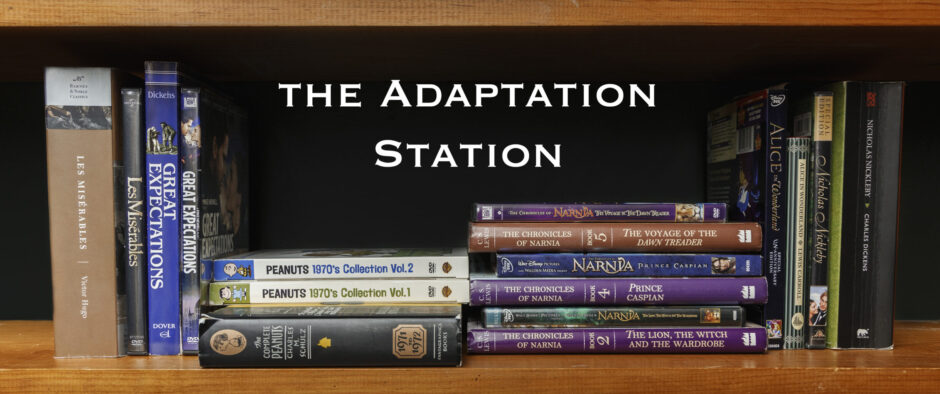The 1995 made-for-television animated movie of The Wind in the Willows was my introduction to Kenneth Grahame’s book as a kid. Looking back, I can see that in many ways it was a better introduction to it than the average adaptation would have been, but in one crucial way it was much worse.[1]I’m probably exaggerating by calling it the worst in this post’s title. I haven’t seen it, but from what I’ve heard, Mr. Toad’s Wild Ride (1996) is basically a Monty … Continue reading
Most Wind in the Willows adaptations, animated or otherwise, emphasize the comedic elements, which were a real but secondary part of the book, and downplay or don’t bother with the poetic elements. In their defense, those are the elements that are probably the trickiest to nail down.[2]In the introduction to his stage play adaptation, Toad of Toad Hall, A. A. Milne wrote, “Of course, I have left out all the best parts of the book; and for that, if he has knowledge of the … Continue reading But this movie really tries to convey the overall spirit of the book. That it succeeds as much as it does is largely thanks to the voiceover narration beautifully read by Vanessa Redgrave and to the musical score by C0lin Towns, which is often tranquil and relaxing but has an edge when necessary. While much tighter and faster paced than the book, Ted Walker’s script has the same relaxed, episodic feel. Two of those episodes are the often cut Piper at the Gates of Dawn and the even more frequently cut Wayfarers All.[3]The 1983 Rankin Bass movie would also include both-in fact, it would try to combine them. Unfortunately, it would not do so particularly well. While the 1983 stop motion Wind in the Willows was … Continue reading The latter is moved to go between the Open Road and Wild Wood episodes, which I’m tempted to say makes more sense than its placement in the source material.
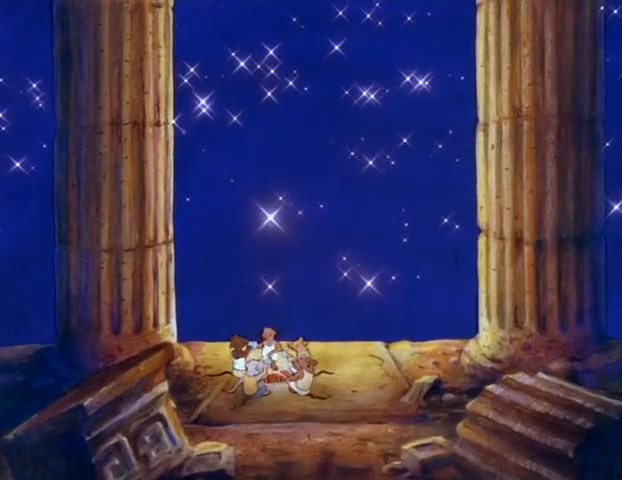
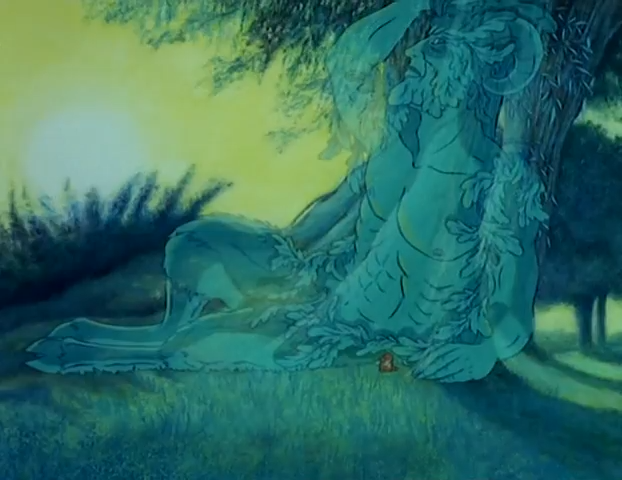
Many adaptations make Rat (here voiced by Michael Palin, who stills give my favorite portrayal of this character) stuffy and uptight, the better to make him a comedic foil for Toad. This version captures his friendly, easygoing personality from the book. But it also shows that he’s capable of anger and not just directed at Toad (Rik Mayall.) Mole (Alan Bennett-at least one of my favorite takes on the character) is likewise nuanced: shy and humble but, unlike in some other adaptations, occasionally aggressive.
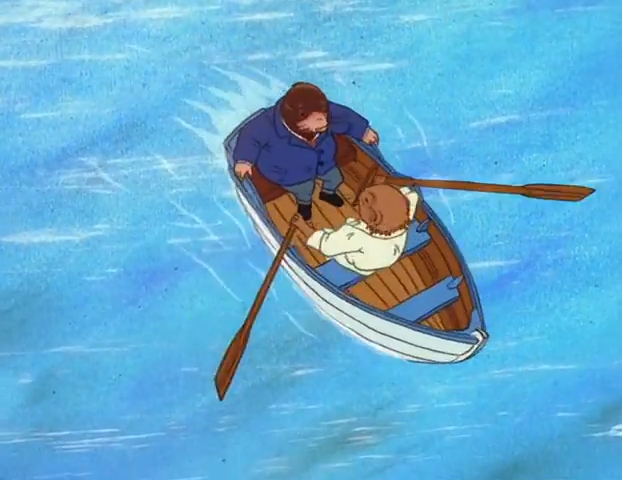
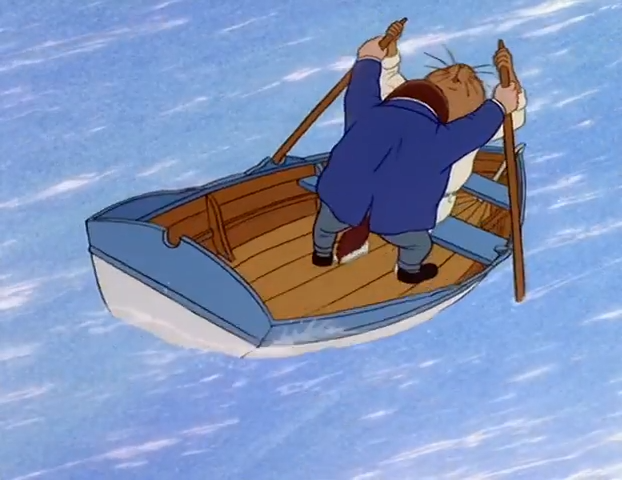
The Badger (Michael Gambon) suffers more from the movie’s faster pacing. But Gambon’s nuanced vocal performance, stern yet somehow friendly, makes up for a lot.
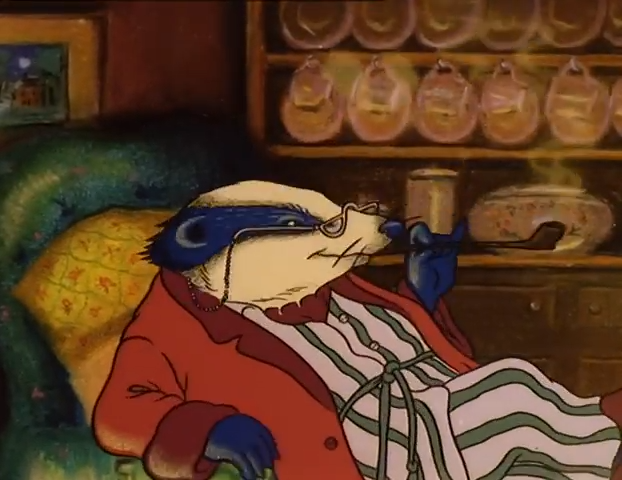
Toad, on the other hand, not only lacks nuance. He’s not even likeable!
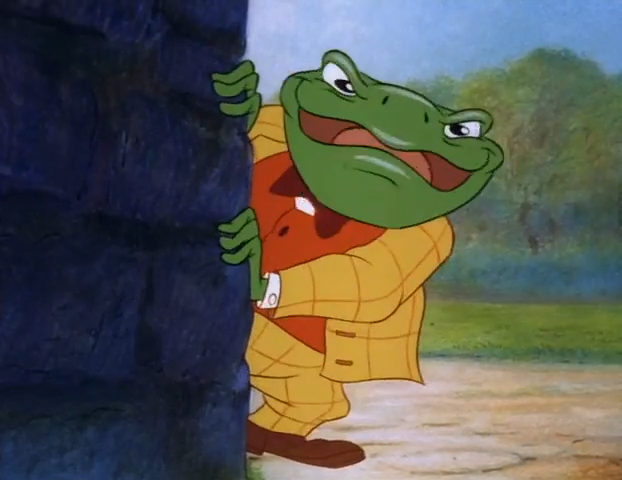
It’s true that this character has always been devious and egotistical-to say the least. But every adaptation decision this movie makes with him renders those aspects of his personality less tolerable and his good points almost nonexistent. In the book, Toad’s theft of a motorcar comes after his friends have staged an intervention that’s kept him from driving for some weeks, making the motor-mad animals’s actions somewhat understandable, if not justifiable. Here he escapes from his captors immediately after being confined to his own room and his subsequent theft comes across as much more malicious and rather out of nowhere for such an important plot point. This might be forgivable if there were other scenes that showed Toad behaving sympathetically. There really aren’t though. His apology to jailer’s daughter (Emma Chambers) for offending her and his apology to Rat in response to the latter’s lecture against criminal behavior are both cut. I can defend the loss of the first one on pacing grounds, but not the other one. At least, the script keeps Toad chastising himself in prison for not listening to his friends (“O wise old Badger! O clever, intelligent Rat and sensible Mole!”), but it stages this with the camera pulling away from Toad as he says this, making it hard for the viewers to focus on his words, and later undermines it by implying his despondency is partly a ruse to gain the jailer’s daughter’s sympathy.
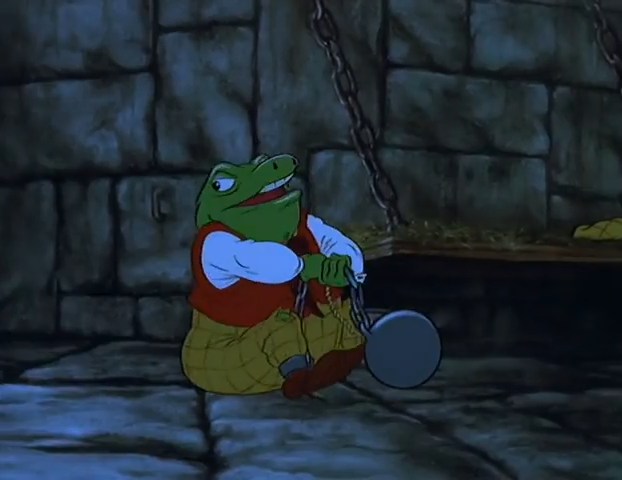
Of course, Toad’s moments of contrition in the book were always short lived and of debatable sincerity. But it turns out that even short lived, debatably sincere repentance goes a long way to make the character work. And Mayall’s energetic but largely charmless performance doesn’t do much to make up for its absence. It’s hard to see why Mole, Rat and Badger are friends with Toad at all in this movie, let alone why the climax should be them restoring him to his ancestral home. Toad’s indignant and arrogant response to hearing that the Wild Wooders have taken over Toad Hall in his absence is included, but not his first two failed attempts at reclaiming it singlehandedly and his ensuing despair, which makes it hard to care about the underdeveloped situation. Maybe that’s the price to pay for including The Piper at the Gates of Dawn and Wayfarers All. Oh well.
I find this version of Toad most enjoyable when he’s being humiliated, like when he’s thrown off the barge or when his friends put a stop to his planned program of self congratulatory speeches and songs at his victory banquet. The latter scene, however, is kind of an insult to its emotionally complex counterpart in the book. There both we and his friends feel sorry for Toad, but know it’s for his own good. Here we feel nothing but satisfaction that someone’s finally put the irritating bore in his place. Bizarrely, the movie only tells us about Toad’s shockingly modest behavior afterwards through narration as if utterly refusing to show the character being likeable.[4]Considering how much of Rik Mayall’s schtick as a comedian revolved around being obnoxious and off-putting, maybe I should be grateful his Toad is as tolerable as he is.
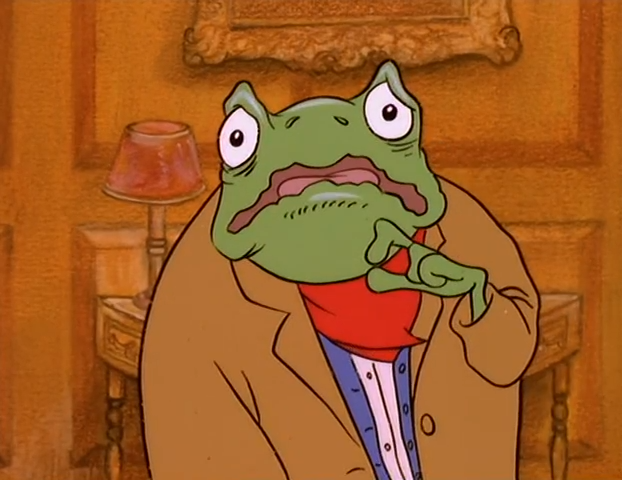
All this is very frustrating and inexplicable since every other adaptation I’ve seen manages to make Toad likeable, if not as loveable as he is in the book. But the things this Wind in the Willows gets right are enough to make it well worth seeking out for Kenneth Grahame fans[5]And certainly not everyone is going to agree with me about how Toad comes across., mainly its beautiful portrayal of Mole and Rat’s friendship.
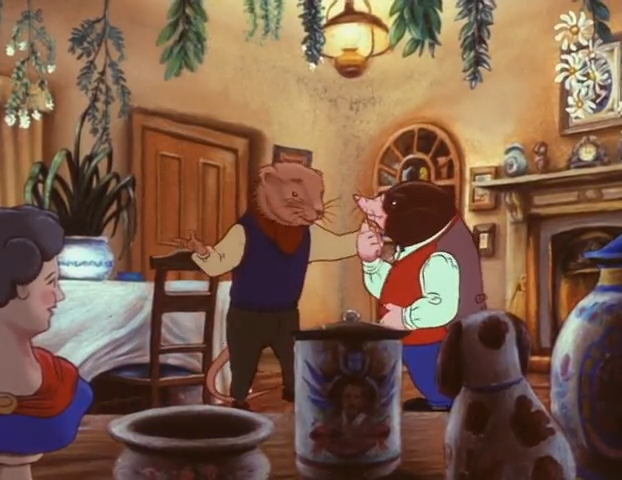
Bibliography
Toad Of Toad Hall : Milne A. A. : Free Download, Borrow, and Streaming : Internet Archive
References
| ↑1 | I’m probably exaggerating by calling it the worst in this post’s title. I haven’t seen it, but from what I’ve heard, Mr. Toad’s Wild Ride (1996) is basically a Monty Python movie with a cast of characters with the same names and species as those in The Wind in the Willows and some similar plot points. |
|---|---|
| ↑2 | In the introduction to his stage play adaptation, Toad of Toad Hall, A. A. Milne wrote, “Of course, I have left out all the best parts of the book; and for that, if he has knowledge of the theatre, Mr. Grahame will thank me…it seemed clear to me that Rat and Toad, Mole and Badger could only face the footlights with hope of success if they were content to amuse their audiences.” |
| ↑3 | The 1983 Rankin Bass movie would also include both-in fact, it would try to combine them. Unfortunately, it would not do so particularly well. While the 1983 stop motion Wind in the Willows was unable to include them, its spinoff series adapted them as memorable episodes, as well as a hilarious Toad scene that had also been cut. Someone on YouTube made an edit that incorporated them into the movie, but I don’t think it works very well. |
| ↑4 | Considering how much of Rik Mayall’s schtick as a comedian revolved around being obnoxious and off-putting, maybe I should be grateful his Toad is as tolerable as he is. |
| ↑5 | And certainly not everyone is going to agree with me about how Toad comes across. |
